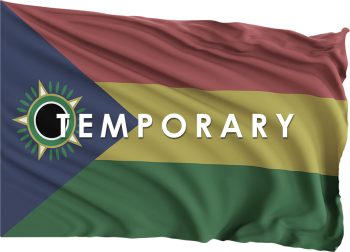Empire of Great Manchuria
| |||

| |||
|---|---|---|---|
| National Flag | |||
| Astrography | |||
| Sovereignty | |||
| Demographics | |||
|
Languages |
| ||
| Infrastructure | |||
| Astropolitics | |||
Manchuria, officially the Empire of Great Manchuria, is a Legacy Nation in the Orion Arm. It is both a member of the Co-Prosperity Sphere and the League of Nations.
Etymology
The geographical term "Manchuria" was first used in the 18th or 19th century by the Japanese. "Manchuria" – variations of which arrived in European languages through Dutch – is a calque of Latin of the Japanese placename Manshū (満州, "Region of the Manchus"), which dates from the 18th century.
History
Pre-First Scinfaxi War
The first dynasty to control Manchuria was the Liao, who conquered Manchuria and Outer Mongolia as well as the adjacent part of the Sixteen Prefectures. The Liao Dynasty was overthrown by the Jin in 1115 CE, going on to conquer parts of Northern China and Mongolia. During the Yuan Dynasty, Manchuria (administered as "Liaoyang") was invaded by the northern Yuan but they were forced to surrender to the Ming in 1387, after which the Ming "pacified" the Jurchens. In the 1580s, the Jurchen chieftain Nurhaci began to unify the Jurchen tribes, founding the Later Jin Dynasty. In 1644, after peasant rebels sacked the Ming capital of Beijing, the Jurchens (now called Manchus) seized control of Beijing, establishing Qing-dynasty rule over all of China.
During the 19th and 20th centuries, Qing hegemony was undermined by foreign powers who waged wars against it to spread their influence. After the Russo-Japanese War in 1905, Japan became the dominant power of the region and replaced Russian influence in Manchuria. In 1915 CE, shortly after the Republic of China toppled the Qing, Japan forced China to cede economic privileges in Manchuria, including treaty port concessions. During the Great War, general Zhang Zuolin established autonomous rule in Manchuria. Japan backed Zhang, who allowed Japan to retain economic privileges in Manchuria. Following the Mukden Incident in 1931 and the subsequent Japanese invasion of Manchuria, the Japanese declared Manchuria an independent state, and appointed the deposed Qing emperor Puyi as emperor of Manchukuo.